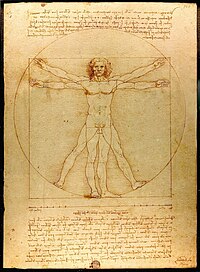National Secular Society: Difference between revisions
No edit summary |
|||
| Line 74: | Line 74: | ||
Nominations for the Secularist of the Year are made by members of the National Secular Society; the winner is chosen by the Officers of the National Secular Society along with Dr [[Michael Irwin]], who has donated the funds which underpin the award. |
Nominations for the Secularist of the Year are made by members of the National Secular Society; the winner is chosen by the Officers of the National Secular Society along with Dr [[Michael Irwin]], who has donated the funds which underpin the award. |
||
== Campaigns == |
|||
== History == |
|||
==Presidents == |
==Presidents == |
||
Revision as of 13:09, 1 May 2008
| Part of a series on |
| Humanism |
|---|
 |
| Philosophy portal |
The National Secular Society is a British campaigning organisation which promotes secularism, the separation of Church and State, to make society fair for everyone, whatever their belief or lack of one. It holds that no-one should gain advantage or disadvantage because of religion. It was founded by Charles Bradlaugh in 1866. The society is a member organisation of the International Humanist and Ethical Union, and endorses the Amsterdam Declaration 2002.
Objectives
Under the banner Challenging Religious Privilege, the Society campaigns for: the disestablishment of the Church of England; the withdrawal of state subsidies to religious schools; the end of tax exemption for churches and an end to the public funding of chaplains in prisons, hospitals and the armed services, as well as keeping religious influence out of healthcare, legislation, Human Rights and equality issues. It was recently highly involved in the abolition of the Blasphemy Law. Religious schools, for example, have been shown to be damaging to social cohesion and to achieve (in some cases) better results only because the most able pupils are cherry-picked in the admissions procedure, which often extends to forcing parents to fake belief and to contribute large 'donations' to gain admission for their children. Another campaign issue is conscientious objections by doctors and pharmacists to certain procedures or treatments and certain patients, which may leave them with nowhere to turn.
Although the organisation was explicitly created for those who reject the supernatural, the NSS does not campaign for an end to religion, arguing that freedom of religion, as well as freedom from religion, is a human right and that state sponsorship of selected religions encroaches upon that right. It holds that belief should be a private matter for the home or place of worship and does not belong in the public sphere. In seeking to represent the interests and viewpoints of atheists, the NSS is often critical of what it sees as the damaging effects of religion.
The NSS also campaigns actively in Europe against the undue influence of religion in political, law-making and Human Rights issues.
Honorary Associates
Honorary Associates of the society include:
|
Professor Lord Wedderburn of Charlton QC |
Secularist of the Year award
Each year, the NSS holds the Secularist of the Year award ceremony at which the Irwin Prize of £5,000 is presented.
Previous winners of the Irwin Prize have been:
- 2005 - Maryam Namazie, a strong defender of women's rights and the right to freedom of expression.
- 2006 - Steve Jones (biologist), a biologist based at University College London well known as the author of a number of books explaining evolution.
- 2007 - Mina Ahadi, German founder of the Central Council of Ex-Muslims.
Nominations for the Secularist of the Year are made by members of the National Secular Society; the winner is chosen by the Officers of the National Secular Society along with Dr Michael Irwin, who has donated the funds which underpin the award.
Campaigns
History
Presidents
- Charles Bradlaugh 1866-1890 (A. Trevelyan held the Presidency, 1871-1872)
- GW Foote 1890-1915
- Chapman Cohen 1915-1949
- R.H. Rosetti 1949-1951
- F.A. Ridley 1951-1963
- David Tribe 1963-1971
- Barbara Smoker 1971-1996
- Daniel O'Hara 1996-1997
- Denis Cobell 1997-2006
- Terry Sanderson 2006 - to date
Bibliography
- Royle, Edward (1974). Victorian Infidels: the origins of the British Secularist Movement, 1791-1866. Manchester: Manchester University Press. ISBN 0-7190-0557-4 Online version
- Royle, Edward (1980). Radicals, Secularists and Republicans: popular freethought in Britain, 1866-1915. Manchester: Manchester University Press. ISBN 0-7190-0783-6
- Tribe, David (1967). 100 Years of Freethought. London: Elek Books.
- Tribe, David (1971). President Charles Bradlaugh, MP. London: Elek Books. ISBN 0-236-17726-5
See also
- British Humanist Association (BHA)
- Rationalist Association (RA)
- South Place Ethical Society (SPES)
- International Humanist and Ethical Union (IHEU)
